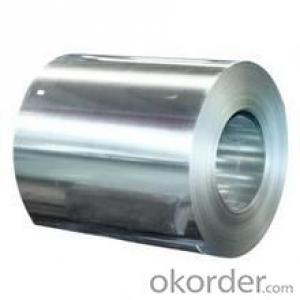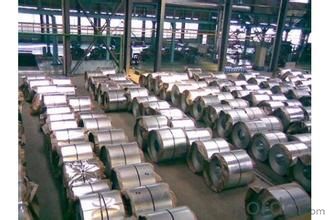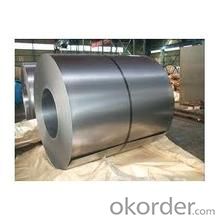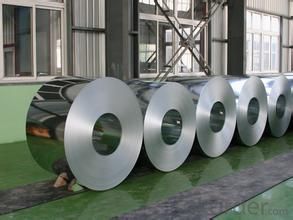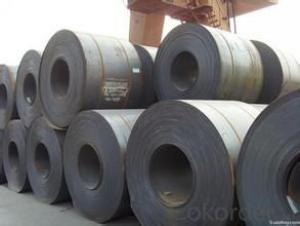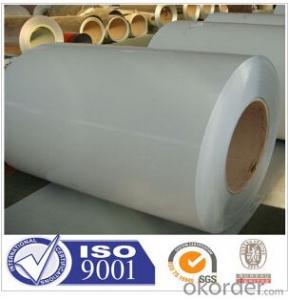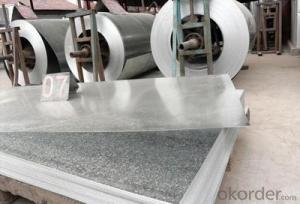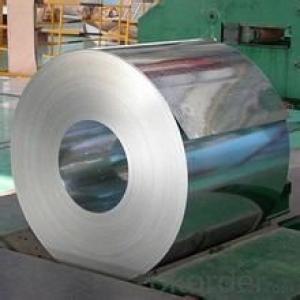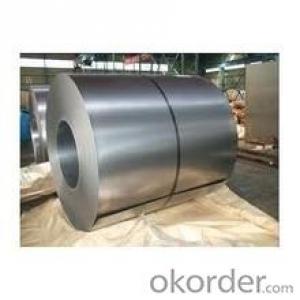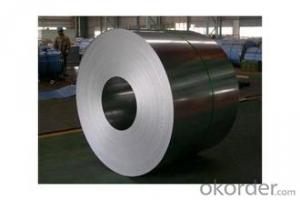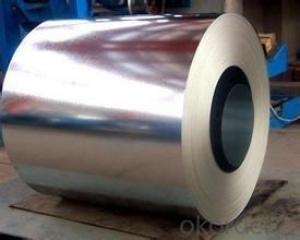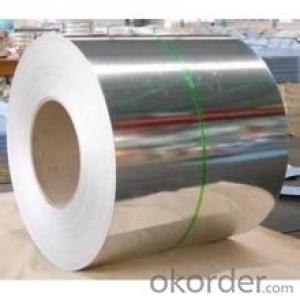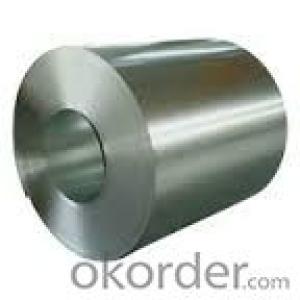HOT-DIP GALVANIZED/ ALUZINC STEEL in China-SGCC
- Loading Port:
- Tianjin
- Payment Terms:
- TT OR LC
- Min Order Qty:
- 30 m.t.
- Supply Capability:
- 5000000 m.t./month
OKorder Service Pledge
OKorder Financial Service
You Might Also Like
Product Description:
THICKNESS:0.18mm-1.5mm
WIDTH:900mm-1250mm
COATING MASS:AZ30-AZ150
SPANGLE:Minimized Spangle,Zero Spangle
SURFACE TREATMENT:N0on or Chromated,Non or Oiled,Non or Anti Finger Print
COIL INNER DIAMETER:508mm/610mm
COIL WEIGHT:3mt-7m
Applications:
Galvalume Coil widely used for roofing products, It is also the ideal base material for Prepainted Steel Coil.
1. roofing
2. gutters
3. unexposed automotive parts
4. appliances
5. furniture
6. outdoor cabinetry
Images:
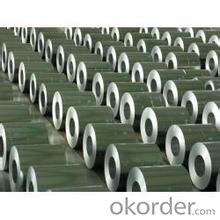
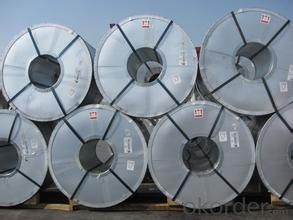
Hot-dip galvanized steel coils are available with a pure zinc coating through the hot-dip galvanizing process. It offers the economy, strength and formability of steel combined with the corrosion resistance of zinc. The hot-dip process is the process by which steel gets coated in layers of zinc to protect against rust. It is especially useful for countless outdoor and industrial applications.
Production of cold formed corrugated sheets and profiles for roofing, cladding, decking, tiles, sandwich walls, rainwater protective systems, air conditioning duct as well as electrical appliances and engineering.
- Q: Can a steel at 0.0055 of thickness still be powerful enough to bash skulls? As well as stop handgun cartridges or at least weaken them?You see, i had an idea of making a cylindrical Knuckles made from steel. By my dimensions, 5in diameter, 12 inch h1 and 15 in h2. Half-Sphere: a sphere that is cut in half for the dome at the fist:( [ pi x ( d ^ 3) ] / 6 ) / 2Cylinder
- I don't follow your calculations. It seems to me that the piece you show could be made from .01 steel and still be less than a pound. Also, it is hard to get steel thinner than .015 because anything thinner is not very useful. If you made it out of .015 steel and used a high strength steel, it might be useful. You wouldn't be bashing any skulls, but with some spikes on the end, it could do some damage, and protect against knives or other hand weapons. You also won't get any bullet resistance out of anything that thin. If you want to bash skulls and deflect bullets, you have to get up to at least .10 and several pounds. Any weight on your hands slows down the speed of your punch, but this is compensated for by the increased energy of impact carried by the extra mass. Also, having something hard to protect your hands allows for harder hits and more damage to the opponent. An interesting idea, but it would take some testing to figure out the optimum configuration. One problem I see is that it completely encloses the hand, making it impossible to use the hand for anything else. So you would have to put it on and take it off a lot, and there would be cases where you wouldn't be able to put it on when you needed it. For that reason, I would not wear two at one time. I would make it heavier and wear it on one hand for bashing skulls and deflecting weapons, and keep the other hand free for other things.
- Q: what pokemon are week to steel type pokemon like lucario? help please, and thank you.
- Ground type pokemon are weak to steel.
- Q: does anyone out there know where to get a good deal on a pedal steel guitar? i am from northern indiana and i'm willing to travel some if i have to.i am just getting into pedal steel guitar and i really don't have any idea what i need. i don't know how to play a guitar (i do know how to play the piano and the drums) at all but i want to learn to play the pedal stell guitar and i can't do that without getting one first so, if anyone can help me out i would greatly appreciate it! :o)
- Pedal steel guitars are a challenge to learn but they're a great instrument. More, even a starter pedal steel is going to run you $800 or so. Elderly Instruments in Lansing, Michigan sells a Carter brand starter pedal steel for $795 which is about as low as I've seen new ones. It has 3 foot pedals and 4 knee levers so it's nicely equipped. From northern Indiana it's not that far I would think. Good luck.
- Q: How do steel coils compare to other materials like aluminum or copper?
- Steel coils have several advantages and disadvantages when compared to other materials like aluminum or copper. One major advantage of steel coils is their strength and durability. Steel is known for its high tensile strength, which means it can withstand heavy loads and high stress without deformation. This makes steel coils ideal for applications that require strong and sturdy materials, such as construction, automotive manufacturing, and transportation industries. In comparison, aluminum and copper are generally softer and less strong than steel, making them less suitable for heavy-duty applications. Another advantage of steel coils is their cost-effectiveness. Steel is a relatively inexpensive material compared to aluminum or copper, making it a more affordable option for large-scale projects or mass production. Additionally, steel is highly recyclable, contributing to its cost-effectiveness and sustainability. However, steel coils also have some drawbacks compared to aluminum or copper. One notable disadvantage is their weight. Steel is significantly denser than aluminum or copper, which can make steel coils heavier and more challenging to handle and transport. This can be a drawback in industries where weight is a critical factor, such as aerospace or electrical applications. Another disadvantage of steel coils is their susceptibility to corrosion. While aluminum and copper are naturally corrosion-resistant, steel is prone to rust and oxidation. Therefore, steel coils need to be properly protected and coated to prevent corrosion, which adds to the overall cost and maintenance requirements. In summary, steel coils offer superior strength, durability, and cost-effectiveness compared to aluminum or copper. However, they are generally heavier and more prone to corrosion. Ultimately, the choice between steel, aluminum, or copper will depend on the specific application, budget, and requirements of the project.
- Q: Can steel coils be coated with weather-resistant materials?
- Yes, steel coils can be coated with weather-resistant materials. Coating steel coils with weather-resistant materials helps to protect them from corrosion and other weather-related damages, extending their lifespan and ensuring their durability in various weather conditions.
- Q: How are steel coils inspected for paint adhesion?
- Steel coils are inspected for paint adhesion through various methods such as visual examination, tape test, and cross-cut adhesion test. These tests involve visually inspecting the surface for any paint defects, applying adhesive tape to check if the paint adheres properly, and making cross-cuts to assess the adhesion strength.
- Q: Two different shaving razors I'm looking to buy have different specs. in terms of the metals used for the blade; one being 1045 surgical stainless steel, the other 440 stainless (not sure if its A B or C, but probably 440A or 440B because it's not specified). So which one is better for the intended use as a shaving razor?
- Type 440 combines such a high grade of cutlery steel, toughness and economy that it is actually known as razor blade steel. Browsing around (a lot) more, it seems that 1045 Surgical Steel is popular in straight razors used by barbers. These razors are honed by stropping with leather and last practically forever. From the above, I would guess that it might be easier to lose the edge on 1045, but also easier to re-sharpen it, that it won't easily knick because probably not so hard as 440. I'm not sure if it would be more expensive, unless it has a superior handle etc. So, I would expect to spend a little more effort over the lifetime of the 1045, maybe pay a little more for it, but have a longer lifetime. hth.
- Q: How are steel coils coated for color and aesthetics?
- Steel coils are coated for color and aesthetics through a process called coil coating. This involves applying a layer of paint or coating onto the steel coil surfaces, which is then cured and bonded to create a uniform and durable finish. This coating process not only enhances the appearance of the steel coils but also provides protection against corrosion and other environmental factors, making them suitable for various applications in industries such as construction and automotive.
- Q: Is it possible that stainless steel watches get rust. Any experience? Thanks.
- Under certain conditions, even stainless steel will rust. They include: Exposure to some noble metals (copper/silver) in a corrosive atmosphere - and why stainless must be separated from silver or silver plate in a dishwasher. Stainless steel will pit if touching silver as many DW detergents are rich in chlorine. Under some conditions, and depending on your skin chemistry, if you wear a copper bracelet on the same arm as the watch, the surface of the watch will pit. If you commonly are exposed to some kinds of welding fluxes, if you are exposed to water with high salt concentration and you do not rinse off the watch after exposure, that can pit the surface. Stainless Steel is no more than corrosion-resistant, not corrosion-proof. Most of the time under most conditions, it is fine. But not all of the time under every condition. As it happens, what affects SS the most is any kind of electrolysis due to galvanic action involving halogen salts.
- Q: How are steel coils used in the production of metal bridges?
- Steel coils are an essential component in the production of metal bridges due to their versatility, strength, and durability. These coils are typically made from high-quality steel alloys, which provide the necessary structural integrity required for constructing bridges. The first step in using steel coils for bridge production is processing them through a series of manufacturing techniques. The coils are uncoiled and straightened to remove any distortions or bends. Then, they are cut into precise lengths according to the bridge's design specifications. Once the steel coils have been processed, they are transformed into various structural components used in bridge construction. These components include beams, girders, trusses, and plates. Beams and girders are typically used for the main support structure of the bridge, while trusses provide additional support and stability. Plates are used for the bridge deck, providing the surface on which vehicles and pedestrians travel. Steel coils also play a crucial role in the fabrication of bridge connections and joints. These connections are essential for transmitting loads and forces throughout the bridge structure, ensuring its stability and safety. Steel coils are used to create various connection elements such as bolts, nuts, washers, and welded sections. Furthermore, steel coils are commonly employed in the production of bridge reinforcements. Reinforcing steel bars, also known as rebars, are manufactured from steel coils. These rebars are used to strengthen concrete elements within the bridge, such as columns, piers, and abutments, enhancing their load-bearing capacity and resistance to bending and tension. In addition to their structural applications, steel coils are also used for protective coatings on metal bridges. Coils can be coated with specialized materials such as zinc, epoxy, or paint to prevent corrosion and increase the lifespan of the bridge. These coatings help to maintain the structural integrity of the bridge, especially in harsh environments where exposure to moisture, chemicals, and weathering factors is high. Overall, steel coils serve as the backbone of metal bridge production. They are transformed into various structural components, connections, reinforcements, and protective coatings that ensure the strength, durability, and longevity of the bridge.
Send your message to us
HOT-DIP GALVANIZED/ ALUZINC STEEL in China-SGCC
- Loading Port:
- Tianjin
- Payment Terms:
- TT OR LC
- Min Order Qty:
- 30 m.t.
- Supply Capability:
- 5000000 m.t./month
OKorder Service Pledge
OKorder Financial Service
Similar products
Hot products
Hot Searches
Related keywords
